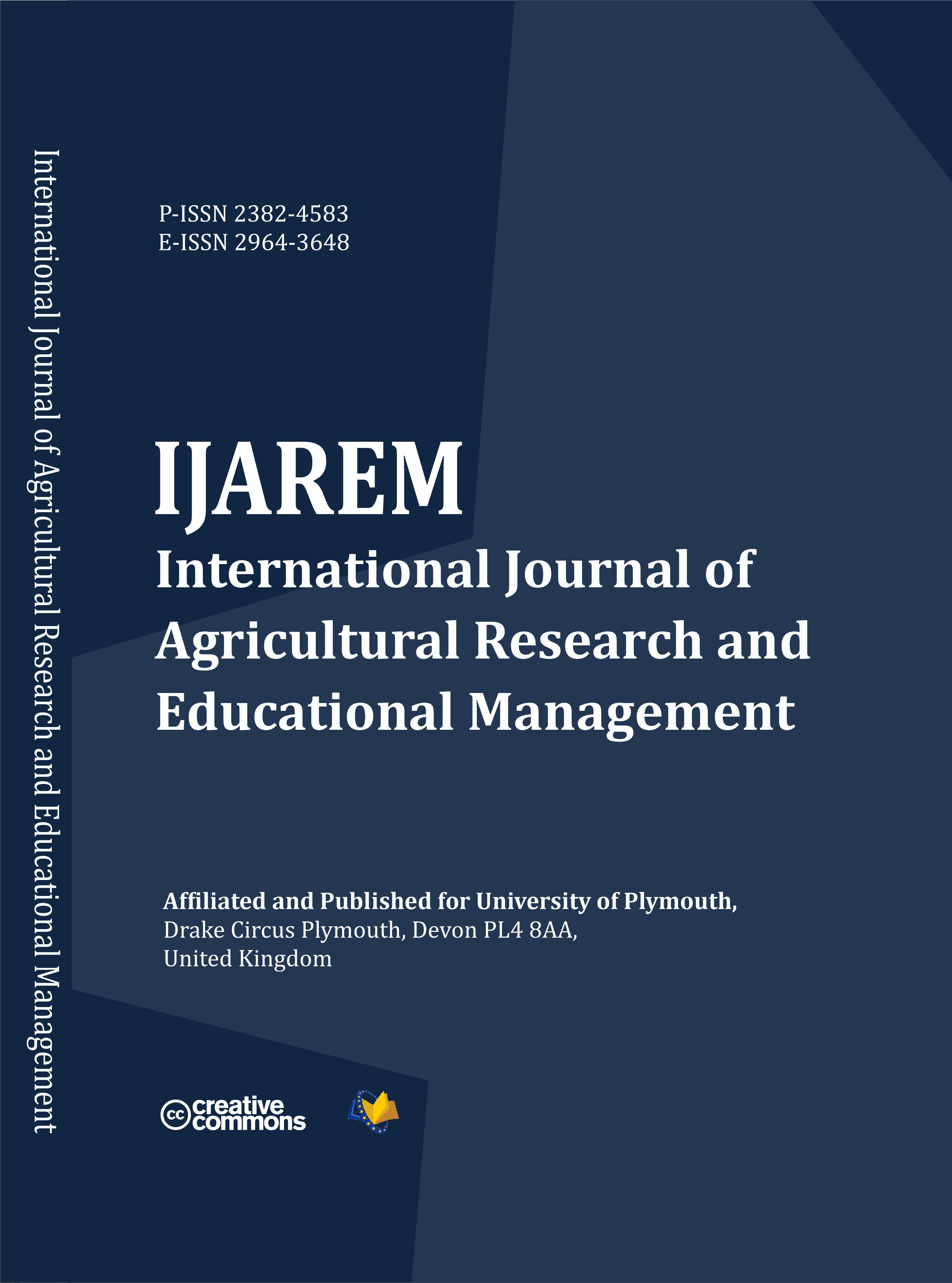International Journal of Agricultural Research and Educational Management (IJAREM)
Agricultural Education and Training (AET) Programme for Rural Farmers’ Improved Food Productivity in Rivers East Senatorial District Rivers State, Nigeria
E-ISSN: 2964-3648
P-ISSN: 2382-4583
DOI: https://iigdpublishers.com/article/782
The study examined how the integration of agricultural education and training (AET) programme would improve food productivity among rural farmers in Rivers East Senatorial District of Rivers State. The study was guided by three (3) research questions. The study adopted a descriptive survey research design. The target population was all peasant farmers in Rivers East Senatorial District. A simple random sampling technique was adopted to select 124 female and 102 male from five local government areas in the zone. The instrument for data collection was a self-structured questionnaire designed in a 4- point rating scale of agreement titled Agricultural Education and Training (AET) Programme for Rural Farmers Improved Productivity Questionnaire (AETPRFIPQ). The instrument was scrutinized by two experts from Rivers State University, Faculty of Education, and Department Agricultural Education. The reliability of instrument was established using Cronbach alpha reliability which yielded an index of 0.86. Data was analyzed using mean and standard deviation with a benchmark mean value of 2.50. Findings from the study revealed that training programmes such as farmer-trained, field-school programme and enterprise training would enhance quality of information of farmers thus improving their agricultural productivity, enhance adequate adoption of new farming techniques, enhance smallholder farmers’ managerial skills and improve farmers’ skills in control of farm diseases. The study therefore recommends the integration of fieldschool approach in different areas of agriculture by extension officers and other stakeholders as it has the potentials for increased production and awareness of agribusiness training should be made to all stakeholders in agriculture from the lowest cadre of both extension and research officers to policymakers.
Nlebem B. S. PhD & Ejimofor Destiny Ndidi
Amadi, N.S. & Nnodim, A.U. (2011). Needs for Curriculum Innovation in Agricultural Education and Mechanization in Schools and Colleges. Research in Curriculum Studies, 6(92), 199-207.
Chipeta, S., Christoplos, I. & Katz, E. (2048). Common Framework on Market-Oriented Agricultural Advisory Services. Wagineng, Netherlands: Neuchâtel Group.
Davis, K., Ekboir, J., Mekasha, W., Ochieng, C., Spelman, D., & Zerfu, E. (207). Strengthening Agricultural Education and Training in Sub-Saharan Africa from an Innovations Systems Perspective. Discussion Paper 00736. Washington: IFRPI.
Davis, K. (2006). Farmer field schools: A Farm or Bust for Extension in Africa? Journal of International and Agricultural Extension Education, 13(1), 91-97.
Davis, K., Nkonya, E., Kato, F., Mekonnen, D. A., Odendo M., Miiro, R. & Nkuba, J, (2010). Impact of Farmer Field School on Agricultural Productivity and Poverty in East Africa. IFPRI Discussion Paper 00992. Internatica1 Food and Policy Research Institute, USA.
